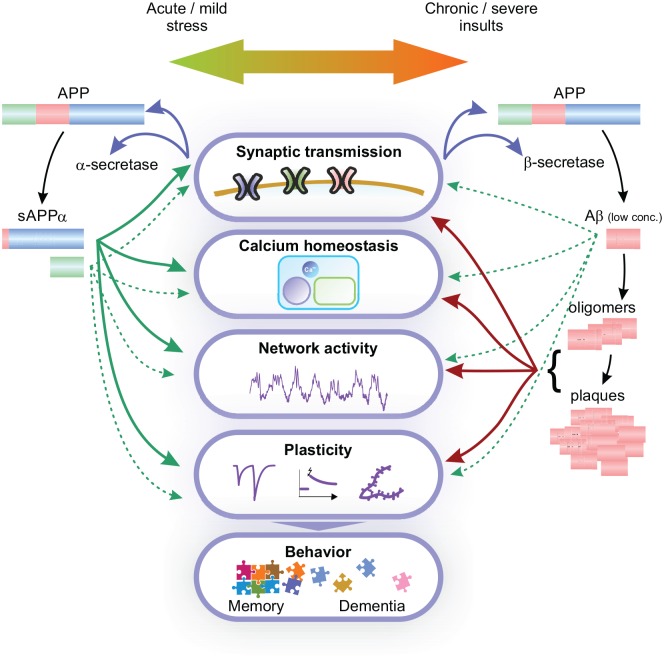Figure 6.
Summary of APP functions on multiple biological scales. APP expression and processing are tightly regulated by neuronal activity. Under physiological conditions (e.g., during learning) and compensable stress, upregulation of APP expression and α-secretase cleavage leads to increased secretion of APPsα and can promote synaptic transmission and plasticity, regulate calcium signaling and homeostasis, thus influencing network activity and promoting learning and memory formation. Furthermore, AICD, which is a product of all APP processing pathways, also modulates these processes. Αt physiological concentrations, Aβ also appears to harbor important functions in regulation of synaptic transmission and plasticity. Chronic and severe insults such as hypoxia-ischemia, on the other hand, might lead to overexpression of APP and/or shift the balance to amyloidogenic signaling. Aβ at high concentrations forms oligomers and plaques that act toxic at multiple scales, inhibiting synaptic transmission and plasticity, leading to chronically increased cellular calcium levels, impairments in network function, and ultimately to degeneration and dementia.

